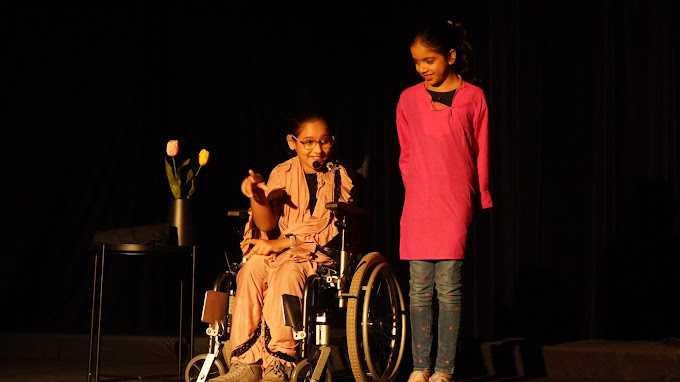Cultural Competence In The Spotlight: Advancing Equity In Drama Curriculum
Hello, dear readers! Today, I am excited to explore the intriguing domain of Cultivating culture and emphasize its crucial role in refining the abilities of budding actors. At “Spotlight On Skill” by Tamasha, led by Deepika Rajani, where Talent Holds Prominence, our commitment lies in nurturing the skills and aspirations of each actor, with a focus on every class. Within this article, I aim to navigate you through the diverse landscape of acting classes, uncovering their myriad aspects and assisting you in discovering the ideal match for your artistic voyage.
Introduction
In recent years, there has been a growing recognition of the importance of cultural competence in education, particularly in the realm of dramatic arts. As society becomes increasingly diverse, it is crucial for drama curriculum to reflect and honor the varied cultural backgrounds and experiences of students. In this article, we will explore the concept of cultural competence in the spotlight, focusing on its significance in advancing equity and inclusion within the drama curriculum.
Understanding Cultural Competence in Drama Education
Cultural competence refers to the ability to effectively interact and engage with individuals from diverse cultural backgrounds. In the context of drama education, cultural competence involves creating an inclusive learning environment that respects and celebrates the cultural identities of students. Key components of cultural competence in drama curriculum include:
- Representation: Ensuring that the stories, characters, and themes explored in drama classes reflect the diversity of human experiences and cultural perspectives.
- Respect: Valuing and honoring the cultural backgrounds, traditions, and beliefs of all students, creating a safe and welcoming space for expression and dialogue.
- Collaboration: Encouraging collaboration and exchange among students from different cultural backgrounds, fostering mutual understanding and appreciation.
- Adaptability: Being flexible and responsive to the cultural needs and preferences of students, tailoring teaching methods and materials accordingly.
- Empowerment: Empowering students to explore and express their own cultural identities through dramatic performance, promoting self-confidence and self-awareness.
Advancing Equity Through Cultural Competence
Cultural competence plays a crucial role in advancing equity and inclusion within the drama curriculum. By embracing diversity and promoting cultural understanding, drama educators can create a more equitable learning environment where all students feel valued and respected. Some ways in which cultural competence contributes to equity in drama education include:
- Representation Matters: Incorporating diverse voices and perspectives in theatrical productions and classroom activities helps to challenge stereotypes and promote social justice.
- Breaking Down Barriers: Cultural competence helps to break down barriers to participation and engagement for students from marginalized or underrepresented communities, creating opportunities for all students to thrive.
- Building Empathy and Understanding: Through exposure to diverse cultural narratives and experiences, students develop empathy and understanding for others, fostering a sense of empathy and solidarity across cultural divides.
- Enhancing Academic Achievement: Research has shown that culturally relevant teaching methods can enhance academic achievement and engagement among students from diverse backgrounds, closing the achievement gap and promoting educational equity.
- Empowering Student Voices: By empowering students to explore and share their own cultural identities through dramatic expression, cultural competence promotes a sense of agency and empowerment, amplifying student voices and perspectives.
Implementing Cultural Competence in Drama Curriculum
Integrating cultural competence into the drama curriculum requires a thoughtful and intentional approach. Some strategies for implementing cultural competence in drama education include:
- Diverse Text Selection: Choose plays, scenes, and monologues that reflect the diversity of cultures and experiences, allowing students to explore and connect with stories from different backgrounds.
- Culturally Responsive Teaching: Use teaching methods and techniques that are responsive to the cultural backgrounds and learning styles of students, incorporating culturally relevant examples, references, and activities.
- Guest Artists and Speakers: Invite guest artists, actors, and directors from diverse cultural backgrounds to share their experiences and insights with students, providing opportunities for cultural exchange and learning.
- Community Partnerships: Collaborate with local cultural organizations, community theaters, and artists to bring authentic cultural experiences and perspectives into the classroom, enriching students’ understanding of diverse cultures.
- Reflection and Dialogue: Create opportunities for students to reflect on and discuss issues of culture, identity, and representation in drama, fostering critical thinking and dialogue around these topics.
Conclusion
Cultural competence is essential for promoting equity and inclusion within the drama curriculum, providing students with the knowledge, skills, and attitudes needed to navigate an increasingly diverse world. By embracing cultural diversity, respecting individual differences, and fostering inclusive learning environments, drama educators can create transformative educational experiences that empower students to become engaged citizens and agents of change in their communities. In the spotlight of cultural competence, equity in drama curriculum shines brightly, illuminating the path towards a more just and inclusive society.
Stay tuned for more insightful blogs on how drama can positively impact children’s lives!




































